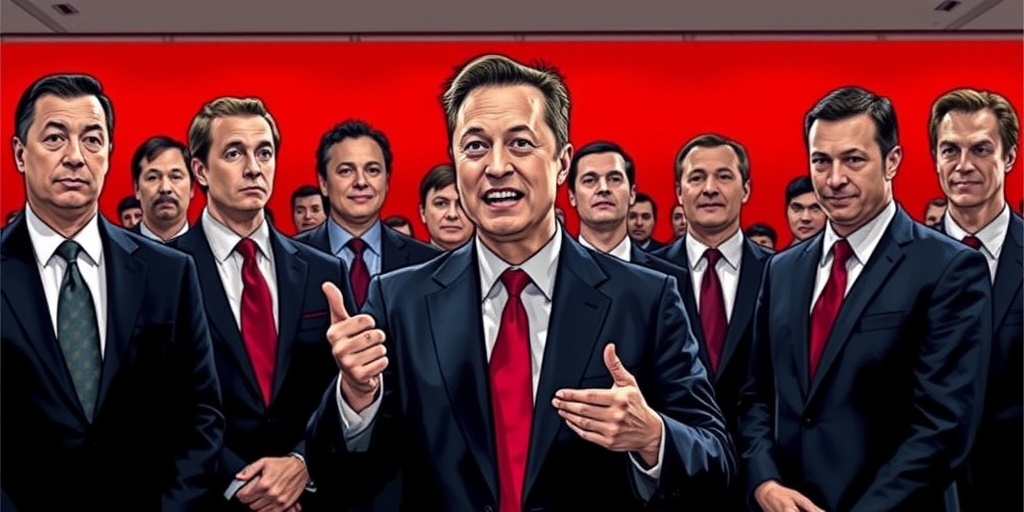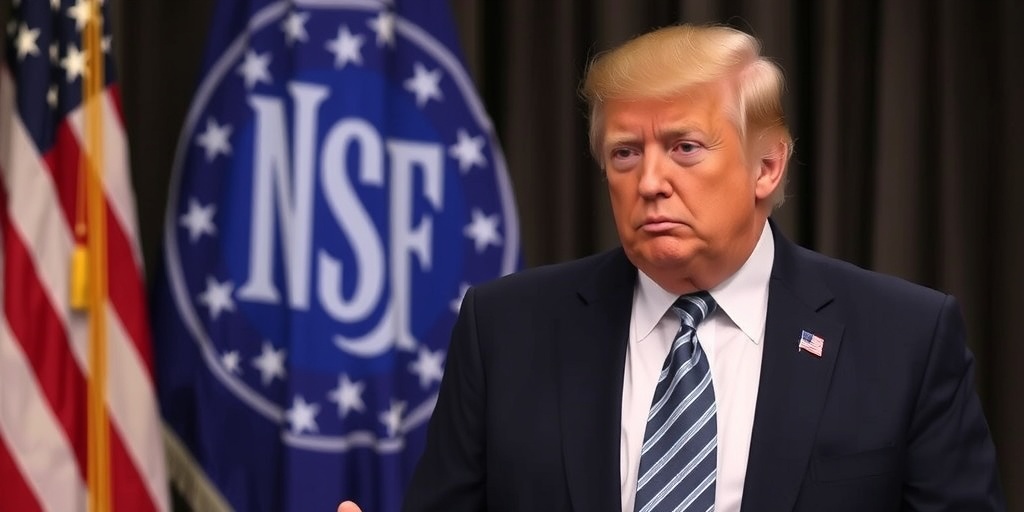Now Reading: Judge Refuses to Halt Musk Team’s Federal Agency Engagement
-
01
Judge Refuses to Halt Musk Team’s Federal Agency Engagement
Judge Refuses to Halt Musk Team’s Federal Agency Engagement

Federal Judge Rules in Favor of Trump, Allows Musk’s Data Access and Personnel Changes
In a significant legal development, a federal judge in Washington, D.C., granted President Donald Trump a notable victory by denying a temporary restraining order sought by a coalition of Democratic state attorneys general. The order would have curtailed Elon Musk and his associates’ access to data across seven federal agencies and blocked them from implementing personnel changes, including layoffs and suspensions.
Judge Tanya S. Chutkan, in her ruling issued on Tuesday, emphasized that the plaintiffs failed to provide concrete examples demonstrating how Musk’s extensive data collection activities could inflict imminent or irreparable harm on the states involved. Her decision underscores the judge’s concern about the legal standards necessary for intervention in matters of government efficiency and restructuring.
In her order, Judge Chutkan acknowledged the general unease surrounding Musk’s recent actions, describing them as having fostered considerable confusion among the plaintiffs and their respective agencies. “The court is aware that DOGE’s unpredictable actions have resulted in considerable uncertainty and confusion for plaintiffs and many of their agencies and residents,” she stated, referring to the Department of Government Efficiency (DOGE), a small team formed under the auspices of the Trump administration to streamline federal operations. However, she made it clear that the mere possibility of future harm was insufficient grounds for judicial intervention. “But the ‘possibility’ that defendants may take actions that irreparably harm plaintiffs ‘is not enough,’” Judge Chutkan concluded.
This ruling reflects the broader atmosphere of uncertainty surrounding Musk’s initiatives, particularly as stakeholders, including federal agencies, grapple with the ramifications of his team’s sweeping measures. The judge’s decision came against a backdrop of Musk’s controversial approach to managing federal resources and personnel, which has recently led to the termination of numerous federal contracts and the dismissal of thousands of workers. “The court can’t act based on media reports,” she cautioned, further highlighting the complexities surrounding Musk’s operations.
The coalition of 14 states, which filed the lawsuit, argued that Musk and his team were directing their actions in an ad-hoc manner, utilizing the data they were collecting to inform their decisions about reshaping federal agencies. Anjana Samant, a deputy counsel at the New Mexico Department of Justice, articulated this concern on Monday, stating, “The way in which DOGE and Mr. Musk have identified how to make cuts is through use and analysis of the agency data. I don’t see how defendants can dispute that.”
In their legal appeal, the states sought a temporary restraining order prohibiting Musk and DOGE from accessing data across several federal agencies, including the Office of Personnel Management and the Departments of Education, Labor, Health and Human Services, Energy, Transportation, and Commerce. They also aimed to prevent Musk’s operatives from placing any employees at these agencies on involuntary leave, whether through termination, furloughing, or other means.
Elon Musk’s Department of Government Efficiency, although not an official federal department, functions as a small team within the executive office of the president. It has been tasked with identifying and targeting what it considers unnecessary government spending. The team has sought to draw attention to obscure grants and contracts through its website, aiming to highlight areas of wasteful expenditure approved by the Trump administration. However, the team’s aggressive measures have also resulted in proposed cuts amounting to billions of dollars without adequate explanation, leading to significant personnel changes across various agencies and the dismissal or suspension of thousands of federal workers.
The ruling effectively clears the way for Musk to proceed with his vision for government efficiency, despite ongoing concerns about the implications for affected agencies and their employees. As the legal contest unfolds, the attention turns to the potential long-term consequences of Musk’s strategy and whether other legal challenges may arise as states continue to scrutinize his actions and their impact on federal governance.
In summary, Judge Chutkan’s ruling not only solidifies President Trump’s stance but also raises important questions about the balance between efficiency and accountability within the federal workforce. Observers will closely monitor how the evolving situation develops and what it means for future interactions between state governments and federal initiatives led by private entities like Elon Musk’s team.
Stay Informed With the Latest & Most Important News
Previous Post
Next Post
-
 01New technology breakthrough has everyone talking right now
01New technology breakthrough has everyone talking right now -
 02Unbelievable life hack everyone needs to try today
02Unbelievable life hack everyone needs to try today -
 03Fascinating discovery found buried deep beneath the ocean
03Fascinating discovery found buried deep beneath the ocean -
 04Man invents genius device that solves everyday problems
04Man invents genius device that solves everyday problems -
 05Shocking discovery that changes what we know forever
05Shocking discovery that changes what we know forever -
 06Internet goes wild over celebrity’s unexpected fashion choice
06Internet goes wild over celebrity’s unexpected fashion choice -
 07Rare animal sighting stuns scientists and wildlife lovers
07Rare animal sighting stuns scientists and wildlife lovers




















